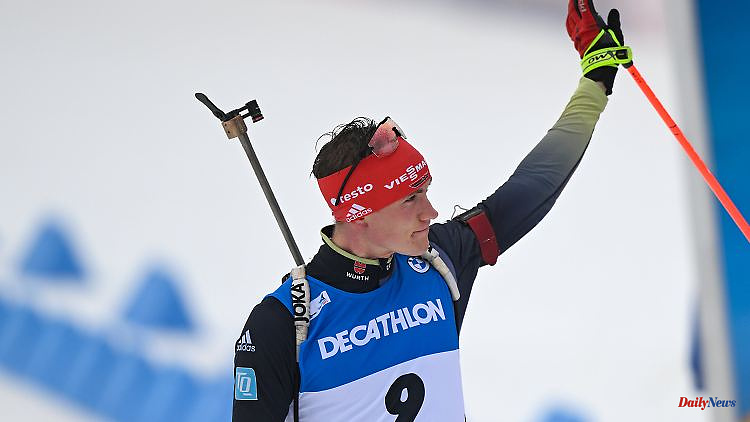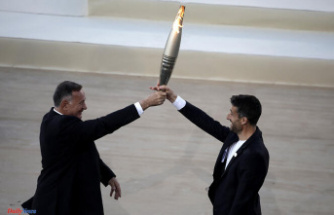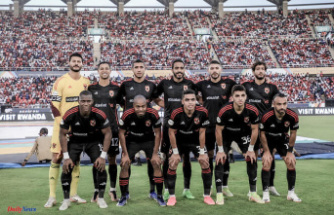Ironically, things are going badly for the German biathlon men at the home world championships in Oberhof. Historically bad even, because they remain without a World Cup medal. Benedikt Doll is really annoyed. For the Norwegian Johannes Thingnes Bö, on the other hand, (almost) everything comes together.
Benedikt Doll was shaking his head and soaking wet in the pouring rain of Oberhof. The veteran's frustration at a messed up World Championship was clearly noticeable - the encouraging applause of 23,500 fans in the sold-out Arena at Rennsteig was only small consolation after an indisputable 26th place in the mass start.
"There were a lot of lows and a few highs," said the 32-year-old from the Black Forest. "I couldn't do it at the shooting range, the skis were bad, and the motivation was gone sometimes," said Doll: "It was a day to forget."
The German biathlon men have remained without a World Cup medal for the first time in around five decades. In the concluding mass start on Sunday, Justus Strelow was the best in 13th place in Oberhof, Thuringia. The 26-year-old from Saxony had a penalty loop and crossed the finish line after 15 kilometers 1:46.0 minutes behind the flawless world champion Sebastian Samuelsson from Sweden. The second Swede Martin Ponsiluoma (2 penalties) secured silver ahead of the Norwegian Johannes Thingnes Bö (3), who won a medal in all races. As the second best German, Roman Rees (2) finished 18th. Johannes Kühn (5) had to settle for 21st place, Benedikt Doll (6) was disappointing as fifth from last of 30 starters.
The historical classification of the rare lack of a medal meanwhile needs a brief explanation. In the statistics, 1976 is the last Biathlon World Cup without precious metal for a men's team from Germany. Back then, 47 years ago and in the Olympic year, the sprint was not part of the Olympic program. That is why only in this discipline was there a World Championship race in Antholz, Italy, in which no German made it onto the podium. At a regular world championship with several races - like now in Oberhof - there hadn't even been a medal in 1969.
Meanwhile, Olympic champion Bö also won a medal on his seventh start on the Rennsteig. Seven times a medal was a record for men, nobody has ever taken so much countable at a World Cup. Only Bös compatriot Marte Olsbu Röiseland had succeeded in 2020 in Antholz.
Former World Champion Benedikt Doll left the top early with two penalties in the first standing stage and fell back to the penultimate place. Bö also had to go straight to the penalty loop, but came back before the second shooting because no one wanted to take the lead. However, he missed a shot again, just like Johannes Kühn and Roman Rees. After the second shooting, Saxon Justus Strelow was the only one of the four Germans who hit all ten shots. The next series also went without a hitch.
Bö took the lead thanks to a rapid fire insert in the first standing stage. Kühn made three more mistakes, Doll made an additional two. Strelow then blundered in the last standing stage and slipped out of the top ten. Bö's last mistake at the end was one too many - and Samuelsson stormed to gold. Simon Schempp won the last German title in the mass start in 2017 in Hochfilzen.












